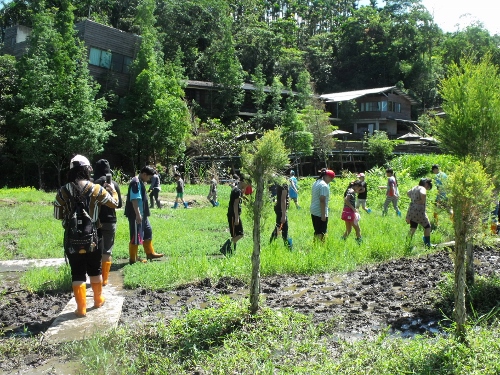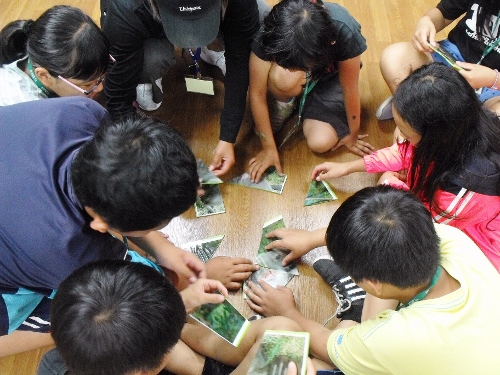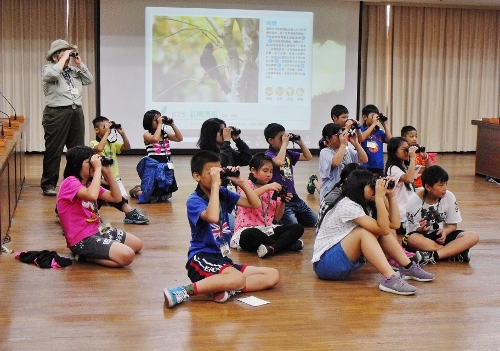With endless lofty mountains and steep hills and gorgeous and spacious natural scenery, Yushan National Park (YSNP) captivates many and is located at the center of Taiwan. As there are some Bunun communities in the park, Yushan National Park Headquarters (YSNPH) values the interaction with these residents. In order to provide more opportunities for indigenous students living in and around the park to broaden their vision in neighboring regions and other counties and cities, this summer break NSNPH has arranged quality environmental education programs and fieldtrips for fourth to sixth indigenous graders. In fact, it is the 14th year for YSNPH to arrange such activities.
Activities for 2017 were planned in support of YSNPH’s environmental education courses, such as “Bears Love Eating”, “Life with Formosan Rock Macaque”, and “Birds Are Singing”, for students to understand more and better about the ecological resources in nature and the environment. In addition, fieldtrips to the Live Basin Leisure Farming Region in Toushe, Sun Moon Lake, were arranged for students to explore the diversity of characteristics in nature and to inspire their concerns for nature and the environment.
Two sessions were planned for the activity: session I on June 26-28 in Nanan and July 3-4 in Dongpu. Each session attracted more than 30 students.
According to the YSNPH case officer, it is hoped that these activities integrated with environmental education can gradually influence students to develop concerns about nature and ecology and protect the environment through self-reflection. Well-experienced volunteer guides were invited to discuss the course contents and design after-class worksheets, in order to optimize every environmental education course.

it is hoped that these activities integrated with
environmental education can gradually influence students to
develop concerns about nature and ecology
and protect the environment through self-reflection.


the course contents and design after-class worksheets, i
n order to optimize every environmental education course.
As most participants were either classmates, schoolmates, neighbors, or siblings, they could well-interact with one another. At breakfast, they shared smiling with one another their yester-night experience and volunteer guides accompanying them in the night they liked most. Through guiding students in the daytime and accompanying them to sleep at night, those volunteer guides have captured the heart of those students with warmth and care. During the activity, some students even voluntarily hugged those guides to express their love for them as seen in their eyes.
At the sharing before the end of the activity, volunteer guides praised the self-motivated attitude to learn from doing of students. Besides equipping students with the knowledge in ecological conservation and the concept of and reflection on respect for wildlife, those volunteer guides hoped that students could understand the need to respect others when interacting with people. They also hoped theat students could consider more about the importance of people around them and the environment. Lastly, volunteer guides and participants shared with one another enthusiastically their favorite events of the activity and expressed their will to join such meaningful activities in the future.


![Text size [Small]](/media/system/images/font_small.jpg)
![Text size [Medium]](/media/system/images/font_normal.jpg)
![Text size [Large]](/media/system/images/font_big.jpg)





